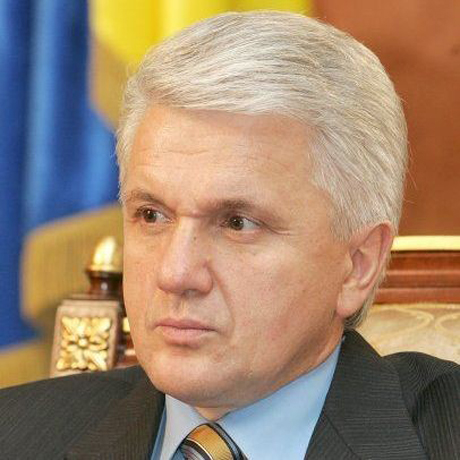Lytvyn, Volodymyr
Lytvyn, Volodymyr [Литвин, Володимир], b 28 April 1956 in Sloboda-Romanivska, Novohrad-Volynskyi raion, Zhytomyr oblast. Politician, historian, and parliamentarian; leader of the Agrarian Party of Ukraine, later renamed People’s Party. Having graduated from the history faculty of Kyiv University in 1978, he obtained a candidate’s degree in 1984 and a doctorate in 1995. In the years 1978–86 Lytvyn worked at Kyiv University, eventually gaining the post of associate professor of history. From 1986 to 1989 he was a department head in the Ministry of Higher and Secondary Education of the Ukrainian SSR, followed by two years in the bureaucracy of the Central Committee of the Communist Party of Ukraine. On completion of his doctoral studies in 1995, he joined Leonid Kuchma’s presidential administration of which he became chief of staff on 22 November 1999, succeeding Dmytro Tabachnyk. He then served on numerous boards and commissions advisory to the president on such matters as security and national defense, science policy, domestic politics, heraldry, administrative territorial division, historical monuments, state prizes, court reform, and adaptation of the legal system to EU standards. In addition, as professor (since 1996) of current history at Kyiv National University he served on the editorial boards of Ukraïns'kyi istorychnyi zhurnal and Intelektual'na vlasnist'. He is the author of Politychna arena Ukraïny: Diiovi osoby ta vykonavtsi (Ukrainian Political Scene: Main Actors and Functionaries, Kyiv 1994) and full member of the National Academy of Sciences of Ukraine.
In the 2002 elections to the Supreme Council of Ukraine, Lytvyn led the pro-presidential electoral bloc For a United Ukraine. Thereafter, following considerable wrangling, he was chosen as speaker of the Supreme Council by a one-vote margin. He was replaced in the presidential administration by Viktor Medvedchuk who was considered a conduit for Russian influence on Ukrainian politics and a person very close to President Vladimir Putin of the Russian Federation. In October 2002, under Lytvyn’s leadership, the For a United Ukraine caucus became the nucleus of a pro-presidential parliamentary majority. As speaker, he successfully steered a version of President Leonid Kuchma’s constitutional reform package through parliament in 2004.
On 9 June 2004, at its congress the Agrarian Party of Ukraine renamed itself the Popular Agrarian Party of Ukraine (NAPU), and elected Lytvyn as its leader. At the time, it had 15 deputies in its parliamentary caucus and claimed a membership of 465,000. It later became the People’s Party.
During the Orange Revolution of 2004, having broken with Leonid Kuchma, Lytvyn took a neutral position between Viktor Yanukovych and Viktor Yushchenko attempting to act as honest broker before siding with the latter. He managed the Supreme Council of Ukraine so that it played a decisive role in the revolution by rejecting the second-round election results as well as by voting no confidence in the government of Prime Minister Yanukovych. For this he was rewarded with an extension to his speakership of the Supreme Council of Ukraine for the duration of its term. In 2006, his newly-formed Lytvyn Bloc electoral alliance failed to cross the threshold, but was successful the following year in overcoming the three per cent barrier. He was again elected speaker of the Supreme Council in 2008, while simultaneously acting as rector of Kyiv National University. The Lytvyn Bloc joined Our Ukraine and Yuliia Tymoshenko’s Bloc (BYuT) in a Western-oriented Orange Coalition and defended Georgia’s integrity during the Russian invasion in summer 2008. Lytvyn took part in the 2010 presidential elections, but ended in seventh place with 2.4 per cent of the vote. After Yanukovych’s victory that year, Lytvyn abandoned his alliance with Tymoshenko to support the government of Prime Minister Mykola Azarov, the new pro-Russian president’s appointee. He was re-elected to the Supreme Council in 2012 with the People’s Party and in 2014, but in 2019 was defeated in his home constituency of Zhytomyr by a totally unknown candidate from the Servant of the People party led by Volodymyr Zelensky. By this time he was an independent candidate, having left the Will of the People group in 2017, and having previously failed to re-energize his own People’s Party.
Lytvyn was implicated along with Leonid Kuchma in the Heorhii Gongadze affair when it broke out in 2000, which he strenuously denied, as well as in the killer’s trial fifteen years later. His officially reported wealth in 2014 indicated that he and his family were millionaires, and in the same year his name appeared in a list of the top ten most odious and corrupt of Ukraine’s politicians. In 2021, Lytvyn ran unsuccessfully for the rector’s position at Kyiv National University, and was under investigation for his part in the Supreme Council of Ukraine’s 2010 ratification of the Kharkiv Accords by which the Russian Federation was granted an extension to 2042 of its Black Sea Fleet base in the Crimea in exchange for a discounted price on natural gas supplied to Ukraine, now seen as a treasonous act.
BIBLIOGRAPHY
Pifer, Steven. ‘European Mediators and Ukraine’s Orange Revolution,’ Problems of Post-Communism vol 54, no 6 (November–December 2007)
Bohdan Harasymiw
[This article was written in 2023.]

